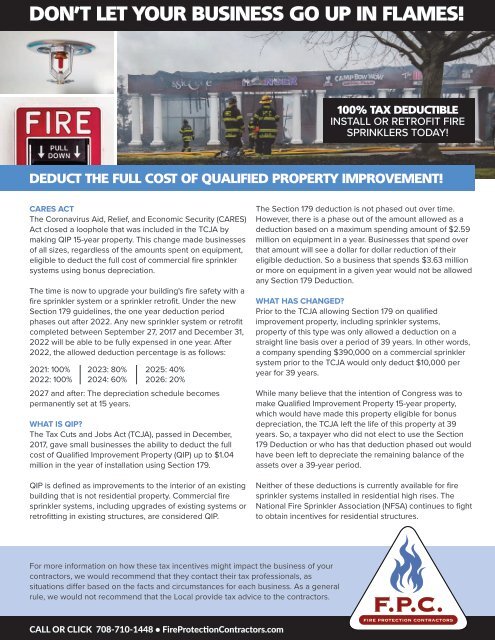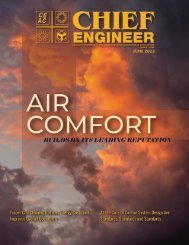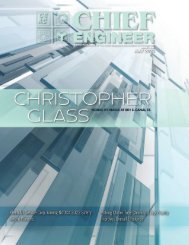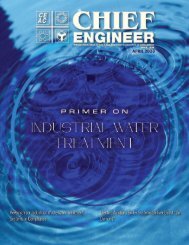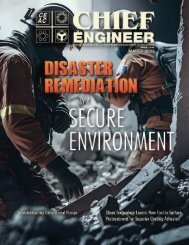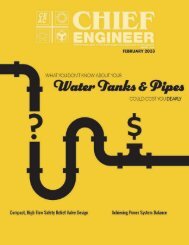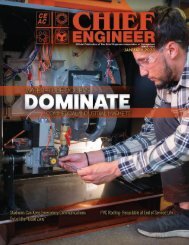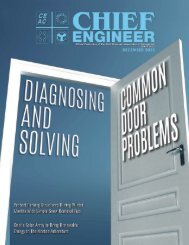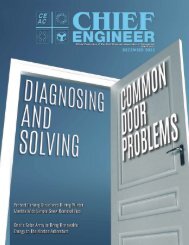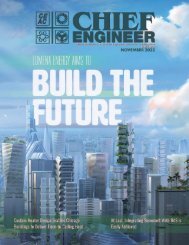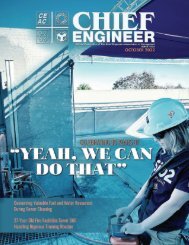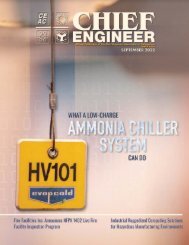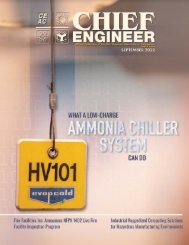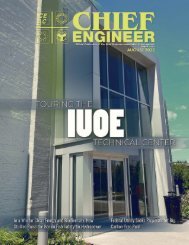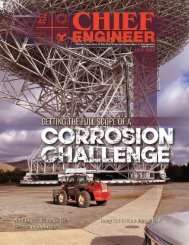CEAC-2021-07-July
You also want an ePaper? Increase the reach of your titles
YUMPU automatically turns print PDFs into web optimized ePapers that Google loves.
DON’T LET YOUR BUSINESS GO UP IN FLAMES!<br />
100% TAX DEDUCTIBLE<br />
INSTALL OR RETROFIT FIRE<br />
SPRINKLERS TODAY!<br />
DEDUCT THE FULL COST OF QUALIFIED PROPERTY IMPROVEMENT!<br />
CARES ACT<br />
The Coronavirus Aid, Relief, and Economic Security (CARES)<br />
Act closed a loophole that was included in the TCJA by<br />
making QIP 15-year property. This change made businesses<br />
of all sizes, regardless of the amounts spent on equipment,<br />
eligible to deduct the full cost of commercial fire sprinkler<br />
systems using bonus depreciation.<br />
The time is now to upgrade your building's fire safety with a<br />
fire sprinkler system or a sprinkler retrofit. Under the new<br />
Section 179 guidelines, the one year deduction period<br />
phases out after 2022. Any new sprinkler system or retrofit<br />
completed between September 27, 2017 and December 31,<br />
2022 will be able to be fully expensed in one year. After<br />
2022, the allowed deduction percentage is as follows:<br />
<strong>2021</strong>: 100%<br />
2022: 100%<br />
2023: 80%<br />
2024: 60%<br />
2025: 40%<br />
2026: 20%<br />
2027 and after: The depreciation schedule becomes<br />
permanently set at 15 years.<br />
WHAT IS QIP?<br />
The Tax Cuts and Jobs Act (TCJA), passed in December,<br />
2017, gave small businesses the ability to deduct the full<br />
cost of Qualified Improvement Property (QIP) up to $1.04<br />
million in the year of installation using Section 179.<br />
QIP is defined as improvements to the interior of an existing<br />
building that is not residential property. Commercial fire<br />
sprinkler systems, including upgrades of existing systems or<br />
retrofitting in existing structures, are considered QIP.<br />
The Section 179 deduction is not phased out over time.<br />
However, there is a phase out of the amount allowed as a<br />
deduction based on a maximum spending amount of $2.59<br />
million on equipment in a year. Businesses that spend over<br />
that amount will see a dollar for dollar reduction of their<br />
eligible deduction. So a business that spends $3.63 million<br />
or more on equipment in a given year would not be allowed<br />
any Section 179 Deduction.<br />
WHAT HAS CHANGED?<br />
Prior to the TCJA allowing Section 179 on qualified<br />
improvement property, including sprinkler systems,<br />
property of this type was only allowed a deduction on a<br />
straight line basis over a period of 39 years. In other words,<br />
a company spending $390,000 on a commercial sprinkler<br />
system prior to the TCJA would only deduct $10,000 per<br />
year for 39 years.<br />
While many believe that the intention of Congress was to<br />
make Qualified Improvement Property 15-year property,<br />
which would have made this property eligible for bonus<br />
depreciation, the TCJA left the life of this property at 39<br />
years. So, a taxpayer who did not elect to use the Section<br />
179 Deduction or who has that deduction phased out would<br />
have been left to depreciate the remaining balance of the<br />
assets over a 39-year period.<br />
Neither of these deductions is currently available for fire<br />
sprinkler systems installed in residential high rises. The<br />
National Fire Sprinkler Association (NFSA) continues to fight<br />
to obtain incentives for residential structures.<br />
For more information on how these tax incentives might impact the business of your<br />
contractors, we would recommend that they contact their tax professionals, as<br />
situations differ based on the facts and circumstances for each business. As a general<br />
rule, we would not recommend that the Local provide tax advice to the contractors.<br />
CALL OR CLICK 7087101448 • FireProtectionContractors.com


